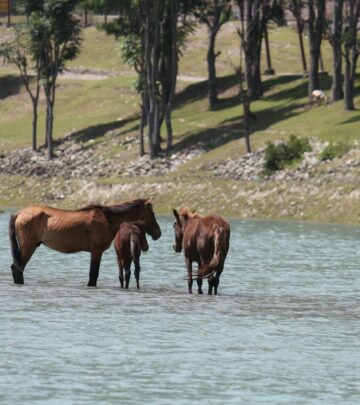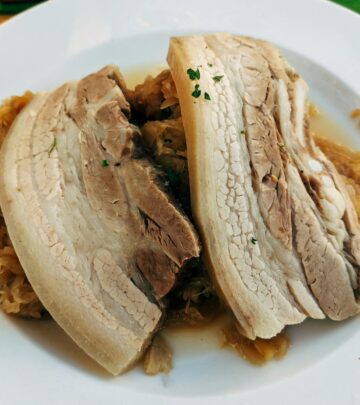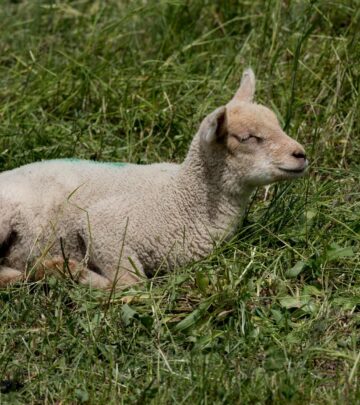Why Do Dogs Eat Dirt: 5 Reasons Your Pup Craves Soil
Earth snacking often points to nutrient gaps, anxiety, or hidden health issues in pets.
Why Do Dogs Eat Dirt?
For many dog owners, watching their pet dig eagerly in the yard or nosing around in the garden is a typical sight. However, when your dog begins to eat dirt—not just sniff or play—concern often follows. While occasional dirt consumption is usually harmless, frequent or compulsive dirt eating can indicate deeper issues, from dietary deficiencies to medical problems and behavioral factors. Understanding why dogs eat dirt (geophagia) is essential for your dog’s well-being and for your peace of mind.
Is Eating Dirt Normal in Dogs?
Most dogs use their mouths to explore the world, so a taste of soil once in a while is not unusual. However, habitual dirt eating—especially if it escalates in frequency or amount—may signal underlying concerns that warrant further attention. While some puppies or younger dogs may eat dirt simply out of curiosity or play, persistent geophagia in any dog should not be ignored.
Common Reasons Dogs Eat Dirt
Dirt eating in dogs has been studied for decades, and experts identify several broad causes:
- Nutritional deficiencies: Missing minerals or vitamins can drive dogs to seek nutrients in the soil.
- Behavioral factors: Boredom, stress, or anxiety may lead dogs to ingest non-food items like dirt.
- Medical issues: Illnesses affecting digestion, metabolism, or general health can manifest in geophagia.
- Curiosity and taste: Sometimes, dirt simply contains an aroma or flavor that appeals to dogs.
- Upset stomach: Dogs may instinctively eat dirt to soothe digestive discomfort.
Nutritional Deficiency
Lack of essential minerals and nutrients—such as iron, calcium, or sodium—can prompt dogs to seek supplements in soil. Commercial dog foods, while generally complete, can vary widely in quality. Home-cooked or unbalanced diets also put dogs at risk for deficiencies. If a dog’s body is lacking specific nutrients, instinct may drive it to investigate and ingest elements from the ground. In some cases, dogs suffering from hunger may also eat dirt to feel more full.
Behavioral Causes
Boredom is a leading cause of geophagia, especially in intelligent or high-energy breeds that lack adequate mental or physical stimulation. Dogs confined to small yards, or those left alone for much of the day, may start to eat dirt as a means to entertain themselves. Stress and anxiety—including separation anxiety or changes within the household—can manifest in compulsive behaviors like pica (the ingestion of non-food items), with dirt being a common target.
Medical Problems
Certain medical conditions may directly or indirectly lead to dirt eating:
- Gastrointestinal upset: Dogs with nausea, discomfort, or intestinal distress sometimes eat soil, possibly seeking relief.
- Undiagnosed illness: Chronic conditions such as liver or kidney disease, hypothyroidism, or disorders affecting the digestive tract may provoke geophagia.
- Parasites: Intestinal worms and other parasites can disrupt nutrient absorption, inciting cravings for substances like dirt.
- Pica disorder: Beyond dirt, some dogs develop a compulsion to eat all sorts of objects, including rocks, garbage, or fabric.
Curiosity, Taste, and Sensory Appeal
Dogs have a keen sense of smell and use their noses and mouths to explore. Sometimes, food or food-related substances—like spilled grease or decaying organic matter—are present in the dirt, driving behavioral digging and eating. In other cases, certain soils contain higher clay content, which has a particular texture or taste that dogs find appealing, possibly mimicking instincts from wild canids.
Self-Soothing for Digestion
Some dogs instinctively eat dirt when suffering from gastrointestinal unrest. Soil high in clay or organic matter might act as a mild abrasive or aid in moving material through the digestive tract, similar to how some wild animals eat fibrous materials to purge or settle their stomachs.
What Is Geophagia?
Veterinarians refer to the habitual eating of dirt as geophagia—a specific form of pica (the consumption of non-food items). While occasional geophagia might reflect curiosity or the presence of an attractive smell, repeated, deliberate ingestion is considered abnormal and usually warrants investigation.
Potential Risks of Eating Dirt
While small amounts of dirt are unlikely to harm your dog, habitual ingestion can lead to serious health risks:
- Intestinal obstruction: Ingested soil, especially if combined with stones or plant matter, can cause dangerous blockages in the digestive tract.
- Pesticide and toxin exposure: Lawns, parks, and gardens may contain fertilizers, chemical treatments, or naturally toxic plants.
- Internal parasites: Soil can harbor parasites like hookworms and roundworms, posing an infection risk when consumed.
- Dental damage: Grit or small rocks in soil can wear down or even break teeth.
- Digestive upset: Large volumes or repeated consumption can lead to vomiting, diarrhea, or chronic gastrointestinal irritation.
How to Respond If Your Dog Eats Dirt
Most cases of dirt eating are relatively benign, especially if isolated or occasional. However, dog owners should pay close attention to frequency and signs of distress. Here is a step-by-step guide:
- Observe carefully: Note when, where, and how much dirt your dog eats. Is it targeting specific areas? Is the behavior new or more intense?
- Remove temptations: If the dirt is contaminated with food remnants or other attractants, thoroughly clean the area or restrict access.
- Assess your dog’s diet: Make sure your dog’s food meets all nutritional requirements for its age, size, and breed. Consult your veterinarian about appropriate diets or possible deficiencies.
- Increase enrichment: Provide plenty of toys, interactive games, structured walks, and opportunities for mental stimulation.
- Limit access: If necessary, leash your dog in dirt-prone areas, block problem spots in the yard, or use barriers as deterrents.
- Veterinary checkup: If dirt eating persists, is compulsive, or is accompanied by vomiting, diarrhea, weight loss, lethargy, or other noticeable changes, contact a veterinarian promptly.
When to See the Vet
Not every case of geophagia is an emergency, but consult your vet if you notice any of the following:
- Persistent or escalating dirt eating, especially with other unusual behaviors
- Signs of digestive distress: vomiting, diarrhea, constipation
- Loss of appetite or weight loss
- Suspected ingestion of toxic or treated soil
- Symptoms suggesting pain, lethargy, or infection
Your vet will likely perform a full physical exam, review your dog’s diet, and may recommend bloodwork, fecal tests, or imaging to rule out nutritional, metabolic, or gastrointestinal issues.
Preventing Dirt Eating: Tips & Strategies
- Feed a complete, well-balanced, and age-appropriate diet—consult your vet on selecting premium commercial foods if you are unsure.
- Provide physical and mental exercise—keep boredom and anxiety at bay with walks, training, puzzles, and play.
- Supervise outdoor time—especially in areas where dirt eating has occurred before.
- Address underlying medical or behavioral issues—treat parasites, consider supplements for diagnosed deficiencies, and discuss anxiety or compulsive behaviors with your vet or a licensed trainer.
- Maintain a clean environment—promptly remove animal remains, garbage, or food spills from your yard and garden.
Common Nutrients Dogs Seek in Dirt
| Nutrient | Role in Canine Health | Potential Signs of Deficiency |
|---|---|---|
| Iron | Supports red blood cell production, oxygen transport | Pale gums, lethargy, weakness |
| Calcium | Essential for strong bones, muscle function, nerve signaling | Muscle tremors, bone problems |
| Sodium | Electrolyte balance, nerve and muscle function | Dehydration, weakness |
| Zinc | Immune function, skin and coat health | Coarse hair, skin lesions |
FAQs About Dogs Eating Dirt
Is it dangerous if my dog eats dirt once in a while?
Occasional dirt eating is usually not harmful, but consistent or large-quantity ingestion can pose significant health risks due to potential toxins, parasites, or mechanical blockage. Monitor your dog and consult a vet if unsure.
How do I know if my dog is eating dirt due to boredom?
Look for other signs of boredom, such as excessive barking, digging, or chewing. Increasing daily exercise, providing interactive toys, and adjusting routines can help reduce boredom-based geophagia.
Can dirt-eating behavior be trained out of a dog?
Many cases related to boredom or habit can be improved with training, distraction, and enrichment. However, if medical or nutritional causes are at play, professional treatment will be necessary; training alone isn’t sufficient.
Why does my puppy eat dirt?
Puppies often explore with their mouths. Small amounts of dirt eating may be part of their learning and exploration. If it becomes frequent or intense, check for dietary gaps or behavioral issues and consult your vet.
What are the signs of a serious problem?
Warning signals include persistent vomiting or diarrhea, blood in stool, lethargy, pale gums, refusal to eat, sudden weight loss, or visible pain. Immediate veterinary care is recommended in these cases.
Conclusion: Protecting Your Dog’s Health
Geophagia in dogs is a multifaceted issue—it may arise from simple curiosity or play, but persistent episodes are worth investigating. As a pet owner, you can prevent serious complications by:
- Providing a nutritious, balanced diet
- Enriching your dog’s environment
- Observing changes in behavior
- Seeking veterinary advice early when behavior persists
While the occasional mouthful of dirt is usually nothing to worry about, being proactive can help ensure your dog stays both happy and healthy for years to come.
References
- https://thenaturaldogstore.com/blogs/health/why-do-dogs-eat-dirt
- https://www.purina.com/articles/dog/health/symptoms/why-do-dogs-eat-dirt
- https://www.cronullavetclinic.com.au/why-is-my-dog-eating-dirt/
- https://www.petmd.com/dog/behavior/why-do-dogs-eat-dirt
- https://www.akc.org/expert-advice/health/why-does-my-dog-eat-dirt/
Read full bio of Anjali Sayee
















Community Experiences
Join the conversation and become a part of our empowering community! Share your stories, experiences, and insights to connect with other beauty, lifestyle, and health enthusiasts.